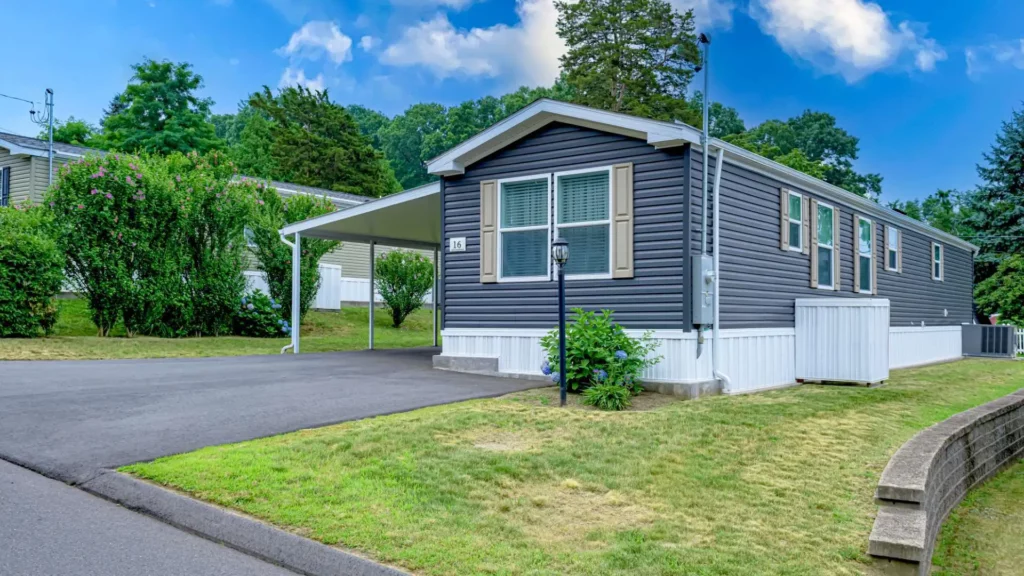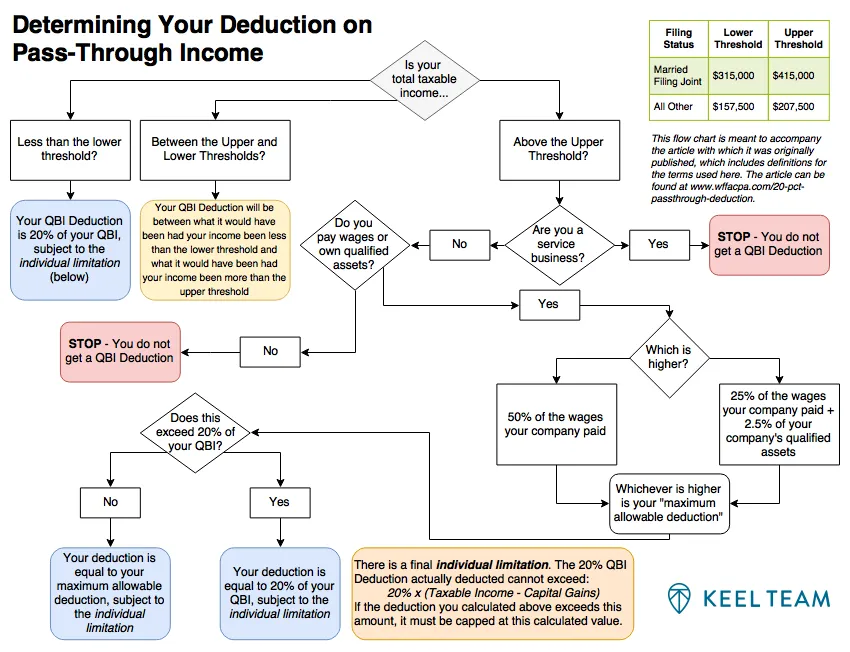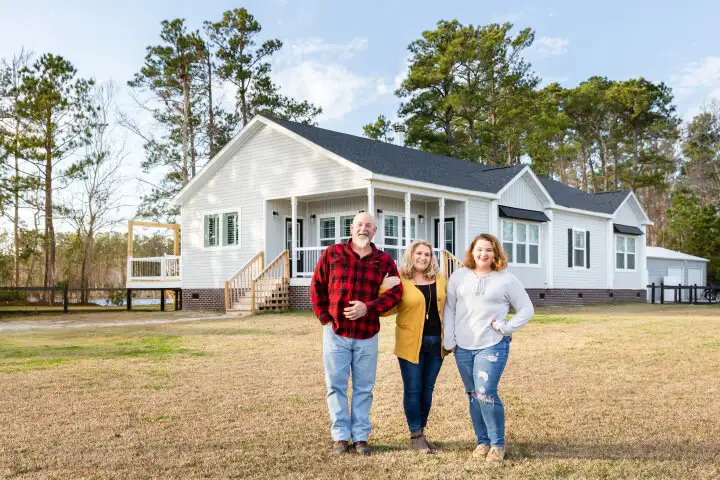Potential Benefits of Investing in Mobile Home Parks: An Underrated Asset Class
-
 Tristan Hunter - Investor Relations
Tristan Hunter - Investor Relations
Mobile home parks are often overlooked when it comes to investment opportunities, but they are an increasingly attractive asset class that deserves your attention. The world of passive mobile home park investing is a path that has the potential to transform your financial future. Below, we’ve outlined the typical benefits of this remarkable asset class and the investment avenue it provides.
Steady Cash Flow Investing
One of the potential prime benefits of mobile home park investing is the generally steady and continuous cash flow. Compared to other real estate assets, mobile home parks tend to have lower vacancy rates. Residents typically stay longer, contributing to the stability of your income. These six key factors contribute to the potentially steady cash flow associated with mobile home park investing:
Less Turnover, More Stability:
Mobile home residents often treat their space as a long-term home, reducing the frequency of turnover that most landlords experience. Unlike apartment renters, mobile home owners usually own their homes and simply rent the land under it. This is a significant commitment that promotes stability for most mobile home parks. This longer average residency means you, as the investor, will generally spend less time and money on marketing and turning over units.
- 56.4% of mobile homeowners have lived in their current home for more than 10 years – Movity
Lower Operating Costs:
The unique business model of a mobile home park—where you typically own the land and not the homes—also means lower operating expenses. The potential for reduced overhead directly translates into more of the rental income remaining as net income, thus creating a more predictable and steady cash flow.
Inflation-Resistant:
Mobile home parks can offer a degree of protection against inflation. As the cost of living rises, so does the demand for affordable housing. Mobile home parks can typically adjust rents at a pace that is often in line with or above inflation rates. This usually ensures that your income as an investor can keep pace with rising expenses, preserving your cash flow.
Revenue Diversification:
Additionally, mobile home parks have the potential to offer diverse streams of income (see top 10 reasons to invest). Beyond lot rents, income can potentially be generated through financing the sale of homes, renting homes, laundry facilities, storage units, and other amenities. This diversification of income sources can further stabilize cash flow, making it more resilient to economic fluctuations.
The Power of Scale:
Investing in a mobile home park is not just about owning a single piece of real estate; it’s about owning a community. With multiple lots under a single property, you get the potential benefits of scale. One vacancy typically won’t affect your revenue significantly, in comparison to single-family rental property. This scale can act as a built-in buffer, safeguarding your steady cash flow.
Perfect for Passive Investment:
Generally speaking, consistent and steady cash flow generated by mobile home parks makes them an ideal choice for passive investors. With a professional management team, like the one you’ll find at Keel Team, investors can enjoy the benefits of property ownership without the daily hassles of direct management. Your investment could potentially be an opportunity to generate income while you focus on what matters most to you.
Lower Maintenance Costs
Mobile home park ownership generally entails lower maintenance costs than other types of real estate investments. In many cases, you are investing in the land, while residents own their mobile homes. This may significantly reduces your maintenance responsibility and expenses. Mobile home parks generally have lower maintenance costs for several key reasons:
- Land Ownership: In most mobile home park investments, the investor owns the land, not the homes themselves. This means that the responsibility for maintaining and repairing individual homes usually falls on the residents who own those homes, and not the mobile home park owner.
- Simplified Infrastructure: Mobile home parks typically have less complex infrastructure than other types of residential properties. The primary responsibility often involves maintaining roads, common areas, and utility connections, usually require less frequent and less costly maintenance compared to full-scale residential buildings.
- Lower Turnover Costs: Residents of mobile home parks tend to stay for longer periods, reducing turnover rates. Lower turnover means fewer costs associated with preparing lots for new residents.
- Economies of Scale: Mobile home parks can allow for the management of many lots under a single entity. This may lead to cost savings through bulk purchasing of materials and services and more efficient use of labor.
- Focused Expenditures: With residents typically responsible for their own homes, mobile home park owners can focus their maintenance budget on essential common areas and infrastructure, which allows for more controlled and predictable maintenance spending.
The mobile home park model has the potential to shift much of the maintenance responsibility from the park owner to the individual residents, and it typically involves simpler, more focused property upkeep, which collectively has the potential of resulting in lower overall maintenance costs for the investor.

Recession-Resilient Investment
History has proven that mobile home parks are among the most recession-resistant investments. As economic downturns make affordability a critical factor for many, mobile home living often becomes a popular choice, thereby stabilizing demand. In turbulent economic times, people generally seek out more cost-effective housing solutions, and mobile homes can potentially provide a viable and attractive alternative to traditional houses or apartments.
This consistent demand for affordable housing options usually makes mobile home park investments particularly resilient to economic fluctuations. Additionally, the relative scarcity of new mobile home park developments tends to add to the stability of existing parks, as limited supply meets consistent or increasing demand. This often results in stable or even rising rental incomes for mobile home park owners.
Lastly, mobile home parks tend to have lower operating expenses, which allows them to remain profitable even in challenging economic environments, making them a wise choice for investors seeking a potentially defensive, counter-cyclical asset.
High Demand, Low Supply
With an increasing need for affordable housing options in the U.S., demand for mobile homes is on the rise. Meanwhile, restrictive zoning laws make new mobile home park developments rare. This dynamic can potentially create a favorable supply-demand equation for investors. In this environment, existing mobile home parks become increasingly valuable assets, often appreciating over time as demand intensifies and supply remains constrained.
“As the need for affordable housing options increases, stabilized occupancy rates continue to reach new highs at 95.4%. The rate of rent growth increased throughout the pandemic, to 2.6%, pushing average monthly rents to an all-time high of $800 with collections averaging a 1% to 4% discount to contract rents.”
JLL – Market Trends and Valuation Index Report
Additionally, the barriers to entry for new competitors are usually high due to these zoning restrictions, which means current mobile home park owners are less likely to face an influx of new competition in the market. Lastly, this strong demand coupled with limited supply often gives mobile home park owners a greater degree of pricing power, which potentially enables them to maintain or gradually increase lot rents while still offering an affordable housing solution, further solidifying the investment’s potential for stable and attractive returns.
Tax Benefits
Real estate investment, including mobile home parks, comes with various tax advantages, such as depreciation and potential capital gains tax deferral through 1031 exchanges. Generally, these can significantly enhance your net returns over time. Here are 3 benefits of passively invest in mobile home parks:
Depreciation:
Depreciation is one of the most significant tax benefits for real estate investors, including mobile home park investors. The IRS allows owners to write off the wear and tear of the improvements on the property (not the land), typically following around a 17 year, accelerated depreciation schedule (generally 27.5 years for residential property and 39 years for commercial property). For mobile home parks, this can include, but not limited to; infrastructure like roads, utilities, and community buildings. This depreciation can potentially be used to offset income generated by the property, thereby reducing the investor’s overall tax liability.
Capital Gains Tax Strategy:
When a mobile home park is sold for a profit, the gain is usually subject to capital gains tax. However, real estate investors can typically use a tool called a 1031 Exchange to defer paying these capital gains taxes. By reinvesting the proceeds from the sale into another “like-kind” property (another real estate investment), investors can potentially defer the payment of capital gains taxes and continue to grow their wealth more efficiently.
Instructions for Capital Gains Tax via IRS →
Pass-Through Deductions:
The Tax Cuts and Jobs Act introduced a potential 20% deduction for pass-through entities, such as Limited Liability Companies (LLCs), S Corporations, and partnerships, which are common structures for owning mobile home parks. This means that investors may be able to deduct up to 20% of their business income from their taxes, potentially reducing their tax liability significantly.

Scalability
Mobile home parks generally offer investors an efficient way to scale their portfolio. With one acquisition, you can possibly own dozens or even hundreds of rentable spaces, providing a potential avenue for substantial growth with a single transaction. This scalability typically allows investors to expand their income streams more rapidly, capitalizing on economies of scale that can most likely lead to lower per-unit operating costs and more efficient management.
Additionally, this model of investment usually enables diversification within a single property; a mobile home park with numerous lots may spread risk across multiple tenants, which can reduce the impact of any single vacancy, and thereby promoting more stable and potentially consistent income. By strategically selecting mobile home parks in different geographic regions, investors have the potential to achieve broader market diversification, which typically mitigates risk and enhances the resilience of their investment portfolio.
Let’s Talk
Get in touch with us to learn more about mobile home park investing today!
Lower Competition
Since mobile home park investing is an underrated asset class, there is often less competition compared to more traditional real estate investments. Generally this makes it easier to find valuable deals.
Community Impact
Investing in a mobile home park isn’t just about profits; it’s also about providing affordable, stable housing for a community. It’s an investment that you can feel good about, knowing you’re contributing positively to the lives of others.
Affordable Housing Solution: Mobile home parks play a crucial role in providing affordable housing options for millions of Americans. They allow families and individuals, who may not be able to afford traditional homeownership, to have a place to live that is historically cost-effective. In an increasingly expensive housing market, mobile home parks can potentially be a vital part of the solution to the housing affordability crisis.

Community Stability and Social Fabric: Mobile home parks often foster tight-knit communities where residents look out for each other and form close bonds. These parks often offer a stable living environment for families, seniors, and others, who might otherwise be pushed into transient living situations due to high rental costs in other housing options. This stability can potentially contribute positively to the social fabric of broader local communities.
Economic and Local Investment: Well-managed mobile home parks typically have a positive economic impact on the areas in which they are located. Mobile home park owners and operators who invest in maintaining and improving their properties not only create a better living environment for residents, but generally they also contribute to the local economy by employing local contractors, purchasing local goods and services, and paying local property taxes. This reinvestment in the community can potentially help to stimulate local economies and enhance neighborhood aesthetics and safety.
Expertise of the Keel Team
Venturing into mobile home park investing can seem daunting, however with the Keel Team by your side, it doesn’t have to be. We are seasoned professionals in this space, with extensive knowledge, resources and the aim of helping you navigate this investment landscape with ease. We offer passive investing options, which means we handle the heavy lifting—you simply enjoy the potential returns on your investment. Check out some of our case studies:
- Vermillion, South Dakota – 46 Lot Mobile Home Park
- Saegertown, Pennsylvania – 80 Lot Mobile Home Park
- Angola, Indiana – 57 Lot Mobile Home Park
- View all of our case studies here →
Your Path Forward
Are you seeking a new investment avenue? Are you tired of the competition and volatility associated with traditional real estate? Mobile home park investing potentially offers a smart and often lucrative alternative. As with any investment, it is important to conduct thorough research, due diligence and consult with a professional before making any investment decisions.
With us, you’re not just investing in property—you’re investing in a team that is deeply committed to your success. Stay tuned for more mobile home park investing guidelines from this blog- which I hope will help you on your mobile home park investing journey!
Curious about the potential of mobile home park investing? Feel free to reach out to us to explore and learn more about how this could fit into your future investment strategy.
Disclaimer:
The information provided is for informational purposes only and should not be considered investment advice, nor a guarantee of any kind. There are no guarantees of profitability, and all investment decisions should be made based on individual research and consultation with registered financial and legal professionals. We are not registered financial or legal professionals and do not provide personalized investment recommendations.

Tristan Hunter - Investor Relations
View The Previous or Next Post
Subscribe Below 👇





